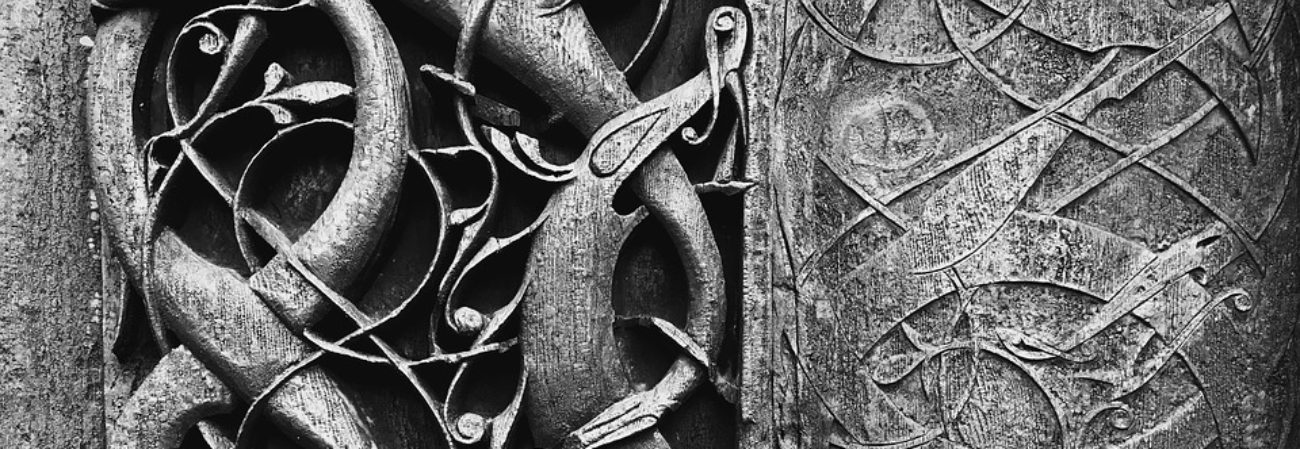
A little known backstory for Sven Thorvaldson in The Serpentine Key is that before he served in the Balkans with Basil II, he was a member of the Akritai. There is no evidence to suggest that Norsemen served in the Byzantine border patrol, but since the Norse (in particular the Rus) had served in various mercenary positions within the empire since at least 911 and often were deployed against the Arabs to the Empires’ eastern borders, it is not without the realm of possibility. So the backstory remains as Sven having a been a member of the Akritai.
The Akritai were recruited mainly native Byzantine infantrymen and Armenian soldiers, being comprised of both professional soldiers and irregular units. In short, they were a mixed bunch, not just militarily but also ethnically. Being on the border, they might have been from anywhere and may well have included mercenaries. According to Historical Sociology and World History by Alexander Anievas and Kamran Matin: “Akritai were exempt from taxation and entitled to full disposition of booty acquired through border raids…” which would have been a very appealing and lucrative contract for mercenaries if they were not exempt from signing up with the Akritai.
Their job was to secure the eastern border, but to also combat brigands, but they were just as likely to be brigands themselves. Their tactics seem to have been guerilla warfare, and involved getting the local populace to fortified strongholds, while harassing and shadowing the enemy, and in this way are reminiscent of American frontier warfare. Of course, if they could line their pockets with the gold of a traveling merchant, particularly if he was a Saracen, well who would notice?
The Akritai were reduced in importance in the latter half of the tenth century (about the time the fictional Sven would have left to to join the war in the Balkans and Basil’s continuing struggle against Tsar Samuil.) However they continued in some form until the latter half the of the thirteenth century. They were recalled by Basil to help him in his Balkan wars when manpower was low. This likely explains the distinctly Armenian vanguard that were responsible for getting Basil out of a tight spot at the ambush at Trajan’s Gate in 986.
The Akritai are best remembered for the Akritic songs ( literally Ακριτικά τραγούδια “frontiersmen songs) the epic poems that celebrated the life of the guard of the Empire’s easternmost frontiers. Digenes Akritas is the best known of these and this one emerged sometime in the 12th century. The hero of this poem is named Basil, though he is known as Diogenes Akritas (“two-blood border lord”) the son of an Arab father and a Byzantine noblewoman. The original Akritac songs were likely oral and put one in mind of the Frankish Song of Roland, which tells the story of a hero much like Digenes Akritas. The Akritic songs might have even had an influence as far afield as France, as their influence showed up in Arabic and Slavic literature.
Like the Danish Beowulf, Digenes also came up against a dragon amongst many other heroic exploits. Like Cú Chulainn of Irish myth, he possesses superhuman strength. Like Cú Chulainn and his Scáthach, he has a love affair with a warrior woman, the Amazon Maximou. Perhaps this only proves how universal the Indo European folk tales really are.
The Akritic Songs provide far more material than I have time to delve into in the scope of this article, but suffice to say, they provide an intriguing look at life at the time. It was very popular for centuries and still retains a level of popularity in Greece today. A graphic novel has been made of the exploits of Digenes Akritas.
In The Red Empress, the courtesan Khatia attempts to read a portion of the Lay of the Emir to a surly Asbjørn, with little success.
When he only shrugged, she said “Or I can speak to you if you like, so you are not so obliged.” She had plenty of experience with men who had retreated into themselves like a cloak.
When he still didn’t reply, she said, “Shall I read to you?”
“If you like.”
With so little encouragement to go on, she sent one of her girls for a copy of one of the Akritai poems, Lay of the Emir. It was about a great romance of the Akritai border guards. She thought it might amuse and distract him. She searched for a passage most likely to be interesting and when she had, she began to read:
“They hissed like dragons, they roared like lions, they soared like eagles, and the two clashed And then you could see a fight between fine brave youths. In the heat of the battle they struck continuously, and from the great clashing and the cut and thrust the plains grew fearful and the mountains re-echoed, trees were uprooted and the sun was darkened.”
She looked up to see if he was still listening. It was difficult to ascertain.
“Blood flowed down over their horse-trappings and their sweat ran out over their breastplates Constantine’s black horse was speedier, and its rider was a marvelous young man. He charged at the emir and struck him a blow with his stick and then the emir began to tremble and flee. A Saracen addressed the emir –”
“Read instead from the Iliad,” Asbjørn interrupted.
Well that was better. She found she better liked his boorish abruptness to which she was accustomed than this stony silence. Still, she had begun to enjoy reading from the Lay of the Emir.
The Red Empress by G.S. Brown
There are also some elements that remind me of the heroic bogatyr from Slavic myth and perhaps some of the Varangians took these popular tales home to Rus’ with them where they influenced the Slavic folk tales. After all, the Russian bogatyr Dobrynya Nikitich also fought his dragon.
